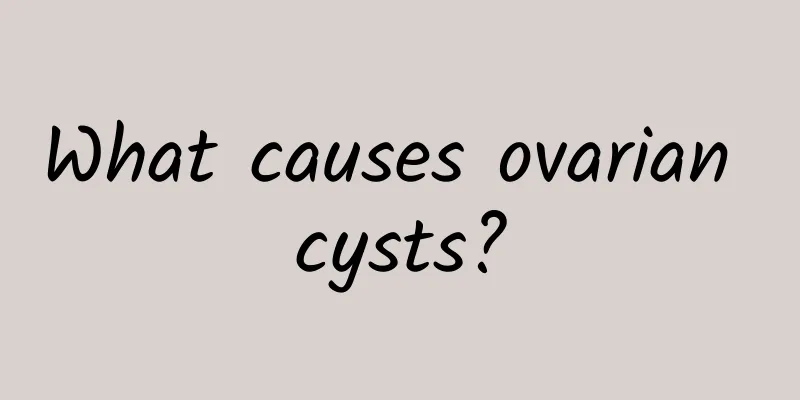What are the symptoms of pelvic peritonitis?

|
What are the symptoms of pelvic peritonitis? This is highly valued because pelvic peritonitis brings a lot of torture to everyone and damages the patient's body and mind. In order to reduce the unnecessary harm caused by the disease, everyone needs to correctly understand the symptoms of pelvic peritonitis and help everyone find targeted treatment plans. Only the correct treatment of the disease can resist the occurrence of disease harm. 1. Lower abdominal distension or pain: Symptoms such as scar adhesion caused by chronic inflammation and pelvic congestion can cause lower abdominal distension, pain and lumbar pain, which are often aggravated after fatigue, life, and before and after menstruation. 2. Chronic pelvic pain: Chronic inflammation causes scar adhesions and pelvic congestion. Symptoms of pelvic peritonitis include lower abdominal distension, pain, and lumbar pain, which are often aggravated by fatigue, after work, and before and after menstruation. Due to pelvic congestion, patients may have increased menstruation; ovarian dysfunction may cause menstrual disorders; and blockage of fallopian tube adhesions may cause infertility. 3. Symptoms of pelvic peritonitis include infertility and ectopic pregnancy: adhesion and blockage of the fallopian tubes can cause infertility and ectopic pregnancy. 4. Abnormal menstruation is also one of the symptoms of pelvic peritonitis: endometritis often causes irregular menstruation; pelvic congestion can cause increased menstrual flow; and ovarian dysfunction can cause menstrual disorders. 5. Systemic symptoms: Most of them are not obvious, sometimes there is only low fever and easy fatigue. Due to the long course of the disease, some patients may have symptoms of neurasthenia, such as lack of energy, general discomfort, insomnia, etc. When the patient's resistance is poor, acute or subacute attacks are prone to occur. Most cases of pelvic peritonitis are caused by pathogens that ascend to the pelvic cavity. Therefore, paying attention to hygiene and avoiding bacterial infection is the key to preventing pelvic peritonitis, which includes paying attention to daily hygiene and living hygiene. Secondly, pay attention to diet. Patients with pelvic peritonitis should eat light and easy-to-digest food during fever. Patients with high fever and body fluid damage can be given pear juice, apple juice, watermelon juice, etc., but they should not be drunk after being chilled. Eat less raw, cold and cool food. What are the symptoms of pelvic peritonitis? The above aspects are the analysis given by experts, hoping to give you some good suggestions. Of course, pelvic peritonitis is very harmful, and severe cases can lead to infertility, so everyone needs to correctly understand the symptoms of pelvic peritonitis and actively go to a regular hospital to treat the disease. Only correct treatment of the disease can avoid the harm of the disease. |
<<: What are the symptoms of pelvic peritonitis
>>: What are the early symptoms of pelvic peritonitis?
Recommend
If you have adnexitis, you may experience varying degrees of abdominal pain.
If you have adnexitis, you may experience varying...
What to eat for dysmenorrhea?
What can you eat to relieve dysmenorrhea? After d...
Is abortion anesthesia harmful to the body? Comparison of the degree of harm of the two types of abortion anesthesia
There are two main types of anesthesia for aborti...
What to do about vaginal dryness during menopause? Here are 6 ways
After women enter menopause, they experience vagi...
Which department should I go to for the second review of uterine fibroids? What examinations are needed for the second review of uterine fibroids?
Which department should I go to for a second chec...
What causes uterine fibroids and how to treat them
Uterine fibroids are common benign tumors in wome...
What medicine should I take for pelvic effusion and low back pain?
Physiological effusion will not exceed 1cm, and i...
What are the early symptoms of pelvic peritonitis?
Sometimes some physiological abnormalities may be...
Does adenomyosis cause abdominal pain?
Adenomyosis is a common disease in women. If you ...
Common home care for patients with hyperprolactinemia
Patients must grasp the nursing methods of hyperp...
What are the symptoms of tumorous ovarian cysts?
Ovarian cysts are a type of tumor in a broad sens...
What are the early symptoms of dysmenorrhea in women?
What are the symptoms of dysmenorrhea? What are t...
Things to know about preventing and treating amenorrhea after taking contraceptive pills
Post-medication amenorrhea refers to the absence ...
What should I pay attention to when I have pelvic effusion?
Pelvic effusion is a gynecological disease that w...
Expert introduction: Treatment of acute pelvic inflammatory disease
The treatment of pelvic inflammatory disease depe...









